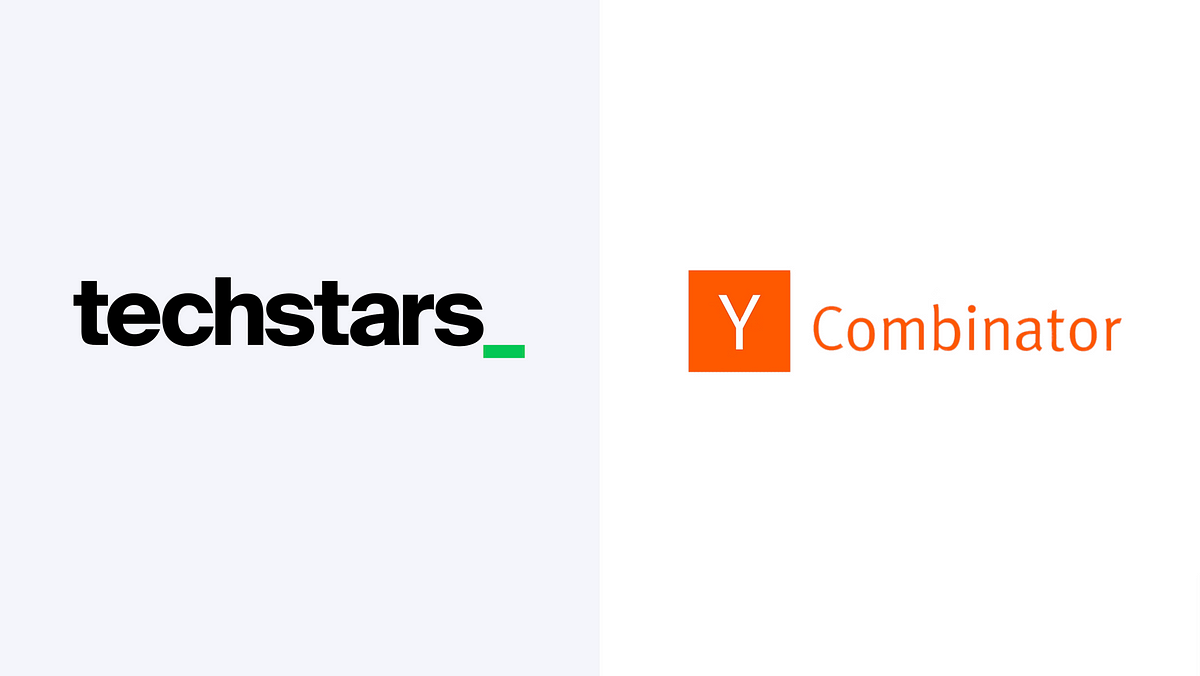When it comes to launching a new tech company, a startup tech accelerator can provide invaluable support. These programs offer knowledge, skills, and funding that can help entrepreneurs succeed and grow their businesses. Two major players in this field are Techstars and Y Combinator. In this article, we will delve deep into the comparison between Techstars and Y Combinator, exploring their differences in accelerator models, global access, mentorship programs, seed money, and more. By the end, you’ll have a clear understanding of which accelerator might be the right fit for your startup journey.

Techstars: A Collaborative Model for Global Startups
Techstars is a worldwide network of mentors, classes, tools, and events that aims to help entrepreneurs succeed. Unlike Y Combinator, Techstars allows startups from all over the globe to participate in their accelerator program. This global access is a significant advantage, as it provides participants with a broader network and diverse perspectives. The Techstars accelerator model is collaborative, bringing together various resources and people to support startups in their journey to success.
Currently, Techstars offers the opportunity for just 12 startups per session, with a maximum seed money of $120,000. In exchange for a small equity stake in the new company, participants receive at least $20,000 in startup capital, a three-month training program, lifetime access to a network of resources and mentors, and more than $1 million in discounts and perks. Notable Techstars alumni include Graphic.ly, Plated, and Next Big Sound.
Techstars has multiple locations, including Techstars Boulder, Techstars Austin, Techstars NYC, Techstars Boston, and Techstars Seattle. While participants are encouraged to work out of one of these offices, there is also a cloud-based program available for global access.
Y Combinator: Silicon Valley’s Intensive Boot Camp
Y Combinator, founded in 2005, has helped launch over 2,000 companies, including tech giants like Airbnb and Dropbox. The Y Combinator accelerator model is based in Silicon Valley, California, and is only available to companies in that area. Participants work alone in their homes or personal office spaces, unlike Techstars’ collaborative approach.
Y Combinator offers an intensive three-month boot camp that culminates in Demo Day, where participants pitch their company to judges and investors. Successful applicants receive a $150,000 investment in their business, known as the “Y Combinator Safe,” which provides funding to live in the Bay Area during the program and launch their company. Y Combinator also offers a remote startup school accessible via a cloud server.
With Y Combinator, the acceptance rate is rigorous, with fewer than one percent of applicants being accepted into the program. The combined value of Y Combinator companies is over $155 billion, making it a highly sought-after accelerator for entrepreneurs.
Comparing Accelerator Models: Techstars vs. Y Combinator
When comparing Techstars and Y Combinator, the most apparent difference lies in their accelerator models. Techstars follows a collaborative model that emphasizes bringing together various resources and people to support startups. On the other hand, Y Combinator focuses on an intensive boot camp approach, where participants work individually in their own spaces.
The collaborative model of Techstars allows for a broader network and access to diverse perspectives. Startups from all over the world can participate, providing a global perspective. This model fosters collaboration and learning from mentors and other startups within the program.
In contrast, Y Combinator’s boot camp approach offers a focused and intensive experience for entrepreneurs. Participants benefit from the concentrated environment of Silicon Valley and the opportunity to pitch to influential judges and investors during Demo Day.
While both models have their merits, the choice ultimately depends on the entrepreneur’s preference for collaborative learning or an individual-focused approach.
Global Access: Techstars’ Advantage
Techstars’ global access sets it apart from Y Combinator. Techstars allows startups from all over the world to participate in their accelerator program, providing a diverse and international perspective. This global network can be invaluable for entrepreneurs seeking to expand their business on a global scale.
Y Combinator, on the other hand, is limited to companies in the Silicon Valley area. While Silicon Valley offers numerous advantages, such as access to a vibrant tech ecosystem and influential investors, the geographical restriction may limit the diversity of perspectives and ideas.
Mentorship Programs: Techstars’ Extensive Network
One significant advantage of Techstars over Y Combinator lies in its mentorship programs. Techstars has an extensive network of mentors who provide guidance, support, and industry expertise to startups. The access to these mentors is a valuable resource for entrepreneurs navigating the challenges of starting and scaling a business.
Y Combinator also offers mentorship programs, but Techstars’ network is more extensive. The broader access to mentors from various industries and backgrounds gives Techstars participants a competitive edge in terms of knowledge and guidance.
Seed Money: Comparing Techstars and Y Combinator
Another crucial aspect to consider when comparing Techstars and Y Combinator is the seed money offered to participants. Y Combinator offers graduates up to $150,000 to kickstart their business, while Techstars provides a maximum of $120,000 in seed money.
The difference in seed money may be a deciding factor for some entrepreneurs. However, it’s essential to consider the overall value of the accelerator program beyond just the initial funding. Factors such as mentorship, network, and resources should also be taken into account when evaluating the financial support offered by each accelerator.
Best Startup Accelerators: Exploring Other Options
While Techstars and Y Combinator are prominent players in the startup accelerator scene, there are other notable options to consider. Some of the best startup accelerators in 2019 included MassChallenge, Fortune 500 Startups, Plug and Play, and 500 Startups.
MassChallenge is known for its rigorous selection process, and participants have the opportunity to pitch for a cash prize at the end of the program. Fortune 500 Startups focuses on supporting startups with high growth potential and offers a range of resources and mentorship. Plug and Play, based in Silicon Valley, runs programs in various industries beyond technology, such as food and beverage, health and wellness, and hospitality and travel. 500 Startups, founded in 2010, provides training, mentoring, and funding for early-stage ventures.
Each accelerator has its own strengths and focus areas, so it’s crucial to research and evaluate which one aligns best with your startup’s goals and industry.
AngelPad: A Unique Approach to Acceleration
Another accelerator worth considering is AngelPad. Founded in 2010 by former Google employees, AngelPad offers two 10-week boot camps each year. With an acceptance rate of around 2 percent, AngelPad provides mentorship, brainstorming sessions, and real-world advice to participants. The accelerator has been consistently ranked as the top US accelerator by MIT’s “Seed Accelerator Benchmark” for the past four years.
AngelPad takes pride in being the “anti-Y Combinator” and has launched 150 companies since its inception. While smaller in scale compared to other accelerators, AngelPad’s focused approach and guidance from experienced industry professionals make it an attractive choice for entrepreneurs seeking personalized support.
Google Startup Lab: A Different Kind of Support
Google Startup Lab offers a unique approach to supporting startups. Alongside various programs, such as an entrepreneurship course and pitch competition, Google Startup Lab provides a global “campus” that matches startup entrepreneurs with mentors and resources. With campus locations around the world, including London, Madrid, Sao Paolo, Warsaw, Tel Aviv, and Tokyo, entrepreneurs can access assistance without a lengthy application process.
Unlike other accelerator programs, Google Startup Lab offers resources to aspiring entrepreneurs without the risk of rejection. This accessibility can be beneficial for those starting a new company and looking for guidance and mentorship.
Conclusion
Choosing the right startup accelerator is a crucial decision for entrepreneurs looking to launch their tech companies. In this comprehensive comparison of Techstars and Y Combinator, we’ve explored their differences in accelerator models, global access, mentorship programs, seed money, and more. Techstars’ collaborative model and global reach make it an attractive option for startups seeking a diverse network, while Y Combinator’s intensive boot camp approach and Silicon Valley connections offer a focused and influential environment.
Additionally, we’ve touched on other notable startup accelerators, such as MassChallenge, Fortune 500 Startups, Plug and Play, 500 Startups, AngelPad, and Google Startup Lab. Each accelerator has its own strengths and focus areas, so it’s crucial to consider your startup’s specific needs and goals when making a decision.
Remember, the right accelerator can provide the knowledge, skills, and funding you need to succeed and grow your business. Use this comprehensive comparison as a guide to navigate the startup accelerator landscape and choose the program that best aligns with your entrepreneurial journey.




No comments! Be the first commenter?